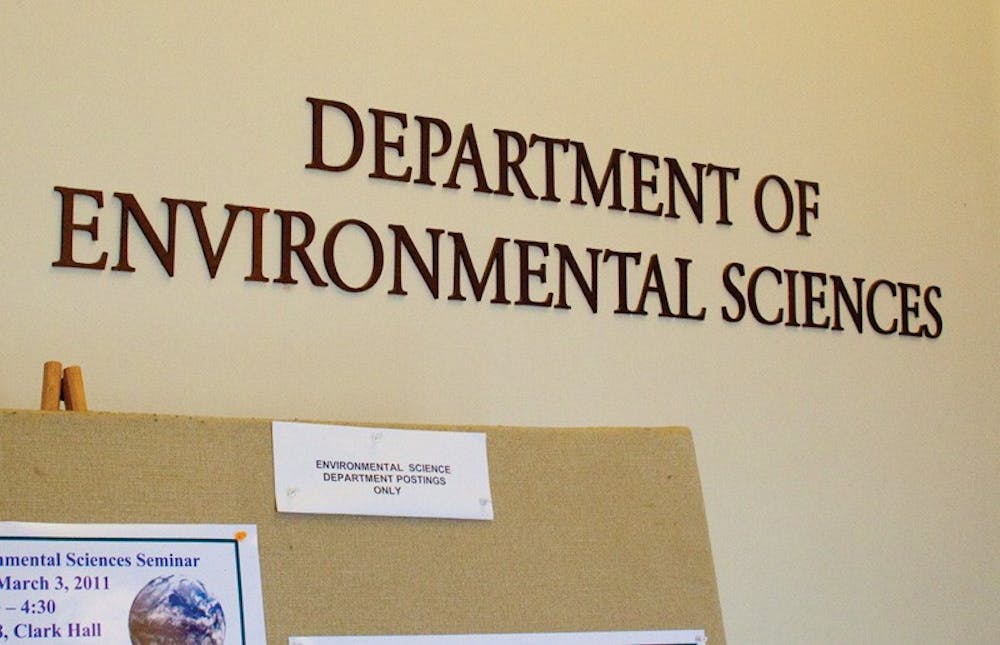The University completed the next step in a year-long legal battle with Virginia Attorney General and University alumnus Ken Cuccinelli by filing a response brief with the Supreme Court of Virginia April 20. The attorney general's office has 14 days to file a response to the University's brief, at which point the state Supreme Court will set a date to hear the case.
The brief, filed in reaction to Cuccinelli's appeal of an Albemarle County court decision, explains the University's legal reasons for refusing to release documents related to former University Environmental Sciences Prof. Michael Mann's climate change research.
Cuccinelli filed a civil investigative demand, the equivalent of a subpoena, seeking information in Mann's documents, emails and personal correspondence he believes will show Mann committed fraud.
In a press release issued last May at the beginning of the controversy, Cuccinelli justified his investigation by saying he suspected the climate change data Mann used to apply for federal and state grants may have been false.
"The revelations of Climate-gate indicate that some climate data may have been deliberately manipulated to arrive at pre-set conclusions," Cuccinelli said. "The use of manipulated data to apply for taxpayer-funded research grants in Virginia is potentially fraud."
Numerous independent investigations have cleared Mann's name of any wrongdoing.
Josh Wheeler, associate director of the Thomas Jefferson Center for the Protection of Free Expression, said Cuccinelli has failed to provide adequate evidence supporting his subpoena. This overstepping of legal bounds has caused the center and several other organizations to file amicus curiae briefs - documents submitted to the court providing alternative arguments for a case - arguing against the attorney general.
"The brief does not take a position on Prof. Mann's research or on the validity of his research, we simply are disagreeing in that the attorney general is over the reasonable interpretation of the statute," Wheeler said. "We are not challenging that the attorney general cannot issue CIDs on universities. Nor are we saying that universities don't have to disclose this information. All we're saying is that he has to be able to justify the subpoenas on some objective statement regarding why he suspects fraud."
Last August, Albemarle County Circuit Judge Paul Peatross Jr. also found the CID lacked sufficient evidence and noted only one of Mann's five grants could be investigated. Consequently, Peatross dismissed the CID, prompting Cuccinelli to file the appeal with the Supreme Court.
In the height of this legal battle, courts must be mindful of the far-reaching effect this case will have on future issues of academic freedom, said Kent Willis, executive director of the Virginia branch of the American Civil Liberties Union, which also filed an amicus curiae brief against the attorney general.
"Courts to a certain degree have a tendency to rule on the narrowest of grounds," Willis said. "And that's what the circuit court did. We wanted to remind both courts that at the bottom line here is academic freedom, and if you allow a state official to gain access to what are essentially private conversations between scientists, that will chill those kind of communications and scholarly discussion."
A decision to uphold Cuccinelli's CID likely would restrict the discussion of controversial topics in academia, Wheeler said.
"Anytime an academic puts forth a novel or controversial theory or hypothesis, under the attorney general's interpretation they can be investigated for fraud," he said. "All their emails, all their correspondence and all their documents pertaining to their research can be subpoenaed. I think it would discourage professors from challenging the status quo, which is really what their research is supposed to do, for fear of being the target of a fraud investigation"







